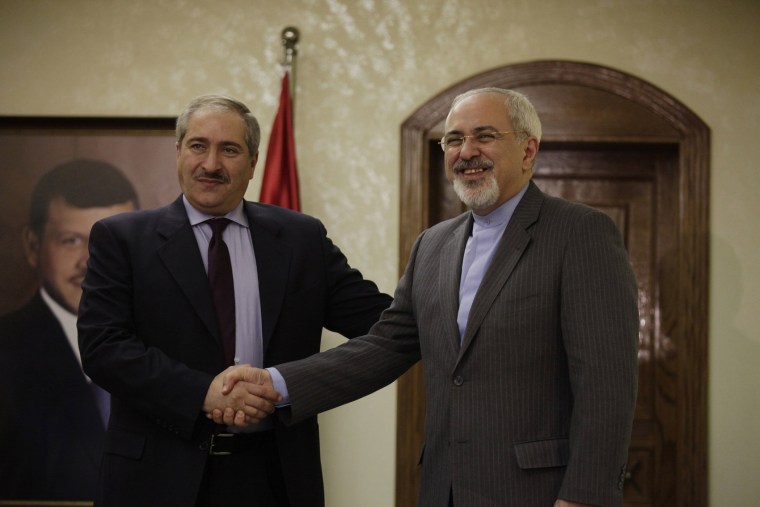In late November, Iranian officials
reached an agreement with the five permanent members of the United Nations Security Council plus Germany (P5+1) on a six-month nuclear deal. But in practical terms, the agreement created the framework for how best to implement the negotiated plan.
Officials announced yesterday that this framework
will now be implemented, effective next week, laying the groundwork for the next phase.
"Capitals have confirmed the result of the talks in Geneva [which] will be implemented from January 20," spokesman Marzieh Afkham told reporters in Tehran Sunday. Under the interim agreement reached in November between Iran and the world powers -- Britain, China, France, Germany, Russia, and the United States -- Iran will begin destroying its stockpile of highly-enriched uranium in exchange for an ease in economic sanctions. During those six months while Iran works to neutralize its stockpile, the world powers will continue negotiations on a permanent deal.
So, stepping back, negotiators have already achieved more than was even imaginable up until very recently. The next phase of talks will be even more difficult, but the fact that the talks are advancing at all is itself a reason for hope.
The real threat, however, is not the delicacy of the diplomatic process. Rather, it's the possibility that Congress will sabotage the process, deliberately crushing the possibility of an international nuclear deal with Iran.
Remember, as we
discussed several weeks ago, policy progress is ordinarily dependent on House and Senate lawmakers reaching some sort of agreement to pass necessary legislation, but when it comes to U.S. policy in Iran, Congress literally doesn't have to act at all. All Congress has to do is nothing -- lawmakers can simply sit back and wait. If Iran acts in good faith and works towards a long-term deal, great. If not, Congress can always take further action as the need arises.
This is, after all, the moment U.S. officials have been hoping for. Congress passed sanctions to entice Iran to come to the table, and Iran came to the table. Pressure from sanctions was intended to encourage Iran to reach a deal, and Iran reached a deal. If Congress could resist the urge to destroy its own success -- new sanctions would derail all talks, force Iran from the table, and tell the world the United States isn't serious about peaceful solutions -- real progress could move forward.
In theory, one might assume that a Democratic-led Senate wouldn't betray a Democratic White House and destroy nuclear talks, but that assumption is highly dubious. Greg Sargent
summarized the lay of the land:
Right now, the current count of Senators who are co-sponsoring the Iran sanctions bill is at 58, with 16 Democratic Senators supporting it. Meanwhile, 10 Democratic committee chairs have come out against the bill. Harry Reid is said to be against it, too. That leaves nearly 30 Senate Dems unaccounted for. [...] We're very close now to the 60 votes it needs to pass. The Dem leadership has no plans to bring it to the floor, but there are other procedural ways proponents could try to force a vote. And if the numbers in favor of the bill continue to mount, it could increase pressure on Harry Reid to move it forward.
In case it's not obvious, the margins matter. If the House and Senate both pass a measure to sabotage a nuclear deal, a veto is inevitable. The question then becomes whether Congress can override the veto with two-thirds majorities in both chambers.
Also note, the more vulnerable the Democratic incumbent,
the more likely he or she is to support new legislation imposing tighter Iranian sanctions and derailing diplomatic talks. In other words, nervous Dems, especially in "red" states, are under the impression that voters will be more impressed if they help move the U.S. closer to, not further from, another military crisis in the Middle East.
President Obama will meet with the entire Senate Democratic caucus on Wednesday, and rest assured, Iran will be a topic of conversation.
Indeed, the president's team is
barely hiding its frustrations: "The White House on Thursday challenged a group of senators to admit they are working to push the country toward war with Iran, upping the tension between the administration and Senate advocates of tough new sanctions amid nuclear negotiations."
